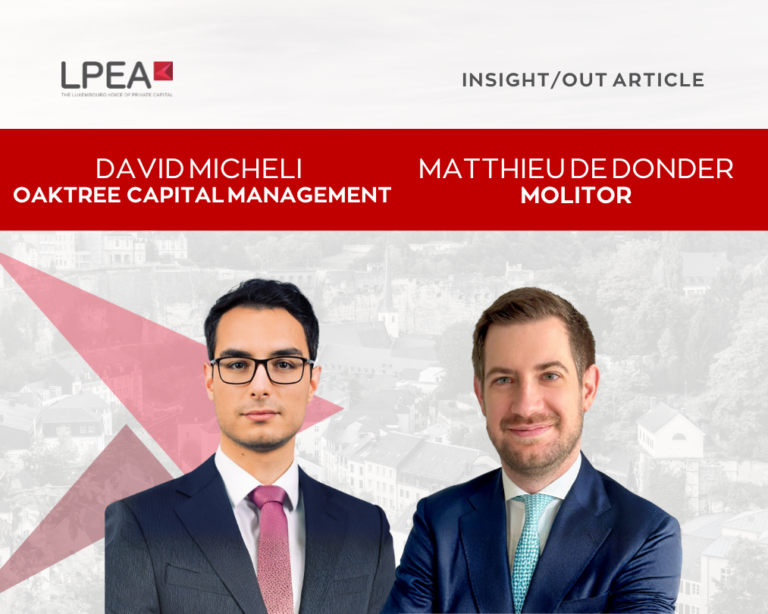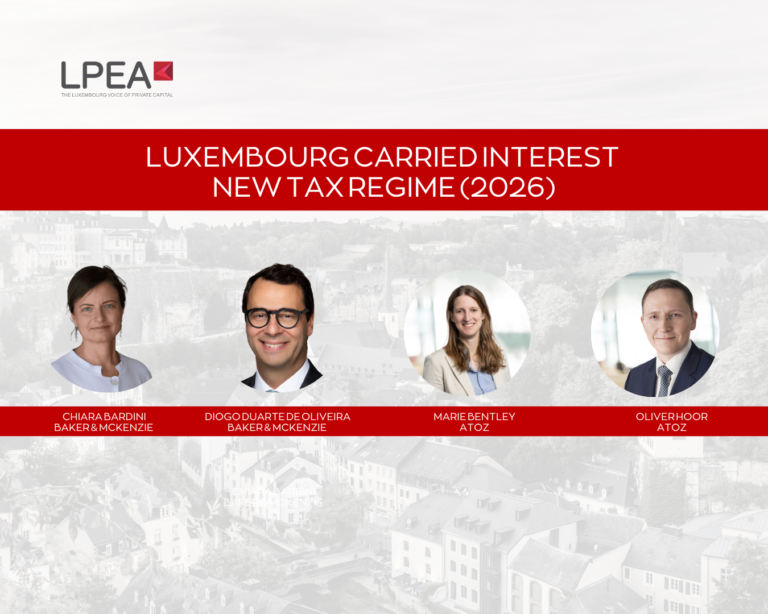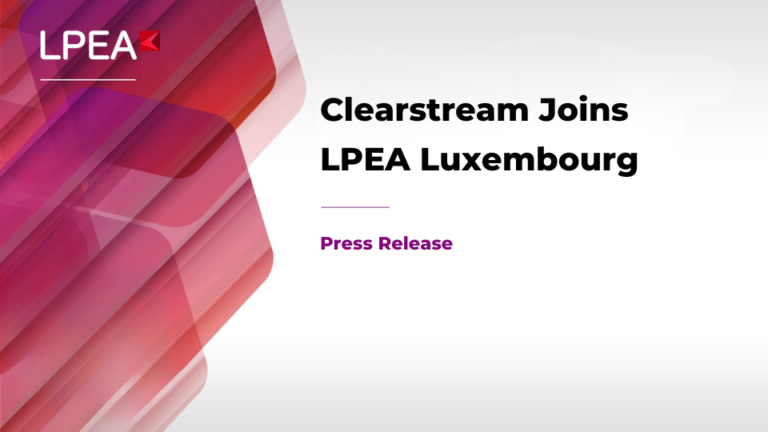By Zuza Reda-Jakima, Managing Partner at pink not red
The recent event organised by the Luxembourg Private Equity and Venture Capital Association (LPEA) in Warsaw focused on the opportunities and complexities of fund operations in the Grand Duchy from the GPs’ perspective. Luxembourg has cemented itself as a global leader in fund domiciliation, being the largest in Europe and second worldwide. Nearly 60% of alternative funds are domiciled in Luxembourg, according to Preqin, making it a familiar and trusted jurisdiction among international investors.
Should we expect an influx of Polish fund promoters and more PE and VC funds setting shop in Luxembourg soon?
Fundraising challenges and Luxembourg’s appeal
Speaking at the event, Luis Galveias of LPEA highlighted the mounting challenges fund managers face in securing capital, particularly in venture capital, where traditional sources have tightened.
“This situation has prompted a shift toward alternative investor bases, such as Family Offices and high-net-worth individuals (HNWIs), who have shown growing interest in the asset class. Luxembourg emerges as a logical choice for managers aiming to appeal to international investors; the jurisdiction is not only a dominant global hub but also offers a familiar and trusted regulatory environment that facilitates cross-border operations,” he said.
Galveias highlighted Luxembourg’s dynamic entrepreneurial ecosystem, which has seen a remarkable increase in both startup activity and investment, spurred partly by initiatives like the Luxembourg Future Fund, managed by the European Investment Fund and the SNCI. This public fund-of-funds targets venture capitalists investing in startups with Luxembourg exposure, further bolstering the Grand Duchy’s reputation as a burgeoning centre for VC.
The investor perspective
The event was heavy on real-live testimonials and knowledge sharing from Polish funds successfully launched in Luxembourg.
Łukasz Dziekoński of Montis Capital shared his firsthand experience establishing a climate tech-focused venture capital fund in Luxembourg. Citing its stable and transparent legal framework, coupled with a diversity of fund structures like the SICAV RAIF (a Reserved Alternative Investment Fund), Dziekoński described Luxembourg as a jurisdiction that aligns seamlessly with the strategic needs of alternative investment funds. “The country’s regulatory and tax environment is robust yet flexible, providing a wide variety of standardised fund structures that cater to different investment strategies,” he said.
However, Dziekoński acknowledged the challenges associated with higher costs and the rigidity of changing service providers during the setup phase. “One of the main challenges was the high cost associated with setting up and managing a fund in Luxembourg,” he said. “Additionally, once you engage a law firm or other service providers, switching to another can be complicated and disruptive.”
His advice to Polish fund promoters is clear: Luxembourg’s advantages, such as access to top-tier investors and a robust regulatory ecosystem, are unparalleled, but they come at a price. Careful budgeting, thorough preparation, and strategic use of Luxembourg’s fund structures—such as RAIFs, SIFs, and SICARs—are critical for success.
Operational realities and challenges for smaller funds
Jacek Pogonowski of Value4Capital focused on the operational intricacies faced by smaller funds in Luxembourg. Despite its well-developed ecosystem of service providers, which includes fund administrators, AIFMs, custodians, and auditors, smaller funds often encounter disproportionately high fees and limited attention from service providers, who primarily cater to larger, higher-volume clients. Pogonowski also pointed to challenges such as securing banking relationships, with banks in Luxembourg favouring larger funds, and managing ongoing regulatory compliance, which can be cumbersome without dedicated personnel.
To navigate these hurdles, smaller GPs often interact with also smaller service providers which can offer a more flexible and personalised service. Value4Capital opted to hire a dedicated CFO to streamline operations and ensure regulatory compliance. However, Pogonowski expressed concerns about the growing reliance of service providers on outsourcing, which can lead to slower response times and questions regarding substance. He emphasised the importance of establishing a strong local presence and securing reliable banking relationships to maintain operational efficiency and credibility.
“There is a relatively large selection of service providers,” said Pogonowski. “But the main issue is the fees charged to smaller funds. The service providers are often working with large funds and therefore practice fees which are less compatible with smaller funds.”
Despite these challenges, Luxembourg’s strong regulatory framework, investor protection measures, and tax efficiency make it an attractive destination for cross-border funds. By carefully considering the factors and leveraging Luxembourg’s strengths, Polish fund promoters can successfully establish and manage their funds in this dynamic financial centre.
Strategic takeaways for Polish fund promoters
The panels underscored the critical importance of timing, preparation, and strategic decision-making for fund promoters considering Luxembourg as their base of operations. “The selection of experienced service providers is paramount, as these partners play an essential role in navigating the regulatory landscape, ensuring compliance, and facilitating efficient fund management,” said Filip Suchta of Q Securities, a depositary firm present in Luxembourg since 2021, servicing more than 60 alternative funds domiciled in the Grand Duchy.
For Polish fund promoters, leveraging Luxembourg’s sophisticated financial ecosystem—while addressing its challenges through meticulous planning—offers a path to accessing broader investor bases and scaling their international presence.
“By embracing Luxembourg’s strengths while preparing for its challenges, fund promoters from Poland and beyond can position themselves for long-term growth in an increasingly competitive global market,” said Filip Suchta. “But timing is crucial for fund promoters considering Luxembourg. Thorough preparation and understanding of the jurisdiction’s complexities are vital for success. They should ensure they are ready for the transition, have adequate fund size to justify costs, and are well-positioned to capitalise on Luxembourg’s advantages,” he said.
Ultimately, Luxembourg stands out as a globally recognised domicile that provides unparalleled advantages for private equity and venture capital funds; however, success requires a nuanced understanding of its complexities, from operational costs to regulatory demands.
“Events like the one hosted by the LPEA in Warsaw continue to foster collaboration and knowledge-sharing, solidifying Luxembourg’s position as a premier destination for cross-border investment funds,” said Luis Galveias. For Poland’s financial industry, this partnership opens doors to a broader, more diverse investor community, driving growth and innovation across the sector.




